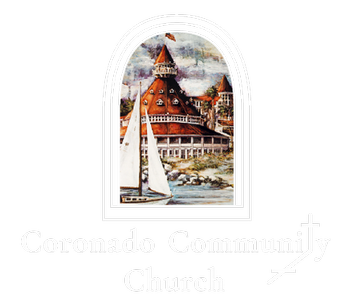Isaiah 5: 1-7
A sermon by Pastor Eric Smith
Published On: August 14, 2022
A sermon by Pastor Eric Smith
Published On: August 14, 2022
The year before Covid a high school classmate asked if I would be willing to perform the wedding of her daughter to her future son-in-law. The catch was that the wedding would take place in Sonoma County… and they had to like me. I met the young couple – they decided I would do just fine – and a plan was established.
Their wedding was held in a vineyard. I have done a lot of weddings in many locations, never in a vineyard. This was gorgeous. Row after row, the vines held large clusters of purple grapes, hanging and ripe, and ready to be picked. The care and nurture of those plants, how they were trained, and how beautiful they were to behold spoke of endless hours of care and attention. We were surrounded by love and, I should also say, the wine was fabulous!
Our reading from Isaiah is about God’s love for a vineyard.
Isaiah was a prophet of ancient Israel. Isaiah was well-known; he was a mystic, a writer, and a speaker. He spoke for God to the whole nation, and people listened to what he had to say. There is no equivalent to a prophet of ancient Israel in our culture. Isaiah’s God-given mission was to make some sense of an impending disaster. He had to explain how God was at work and what that work would accomplish. Not an easy task – especially because what he had to say was not what people wanted to hear.
In this book, Isaiah, like any good communicator, used a series of images to say more than he could with words. He used images to make his point:
- a wolf living with a lamb,
- a leopard lying down with a young goat,
- a lion in friendship with an animal bred for eating,
- a cow and a bear grazing together,
- a toddler safely playing near a poisonous snake,
and, in the case of our passage today, a vineyard that had been cared for and loved but didn’t produce good grapes.
He wrote during a difficult time in Israel’s history. Looking back we know the country was soon to be overtaken by another nation – a superpower of that age. It would be no contest.
God loved that vineyard. God had nurtured it, tilled the soil, planted it with choice vines, done everything that one might do to bring about a harvest of excellent grapes.
But good grapes were not the result. Isaiah called them wild grapes. Not suitable for the use of the landowner… a great disappointment.
Listen to Isaiah’s lament spoken for God…
What more was there to do for my vineyard
that I have not done in it?
Isaiah 5.4
We call this a passage of judgment, but that sounds like an abandonment. Not so… God was never estranged. In today’s vernacular, God’s love for Israel became tough love.
There were problems in that country. God’s values had been supplanted with something less…worthy in the aspirations of people. Character traits of both individuals and the nation had devolved from noble aspirations that led to the betterment of society… to a lack of care for the have-nots and an insatiable desire for wealth.
Isaiah spoke –
the vineyard of the Lord of hosts is the house of Israel,
and the people are his pleasant planting;
he expected justice, but saw bloodshed;
righteousness, but heard a cry!
Isaiah 5.7
Our time in history is unique. We are not God’s vineyard called Israel nor a new version of it. But we can look back to that ancient land, that God had blessed, and glean a lesson about the human spirit from the Biblical story.
Our nation was conceived in hope. Our founders studied history and appropriated the noblest ideals of government in the creation of this nation. It has been a grand achievement that, during our 250 year history, has changed the world.
Now we are in a challenging time, as was ancient Israel.
Today our ideals are not always shared by fellow countrymen. Our national discourse is full of hyperbole, character assassination, and outright falsehood. Today we can hardly talk with one another when national character is the topic. Our vineyard, where, as we sing, God shed his grace on thee… is producing wild grapes.
This is a time for the tough love of God to redeem us and bring us back together again.
A seer of our era described us like this…
The paradox of our time in history is that
we have taller buildings but shorter tempers;
wider freeways, but narrower viewpoints.
We spend more, but have less;
we buy more but enjoy less
We have multiplied our possessions, but reduced our values.
We talk too much, love too seldom, and hate too often.
We’ve learned how to make a living, but not a life,
we’ve added years to life not life to years.
(*attributed to George Carlin)
We have some big problems.
We see and feel the issues of inflation, immigration and border walls, the future of social security, the deep state, racial enmity, the decline of American influence in the world… and many more… but these are just transient symptoms of deeper disease. It’s disease in the soul of our nation.
This is not the first time in American history that our national soul has needed redemption. There have been the Great Awakenings.
This title, Great Awakening, describes several intense periods of spiritual revival in American history. Scholars identify three, maybe four, waves of increased spiritual awareness between the 18th and the 20th centuries. Each of these “Great Awakenings” came about through widespread revival. Nationally there was a dramatic increase of interest in spirituality, along with a profound sense of the need for change.
Well… here we are again. And God is with us.
I’m going to share a great truth with you… starting with… a prelude of comic strip wisdom.
Charles Schultz drew a comic strip for nearly 50 years – Peanuts – featuring Charlie Brown, his friend Lucy, and his dog, Snoopy. We have known these characters nearly all of our lives.
In one classic strip Charlie Brown is visiting Lucy, who is at her psychiatrist’s stand offering help for a nickel.
Charlie Brown says: I need help! Tell me a great truth. Tell me something about living that will help me.
Lucy asks, Do you ever wake up at night and want a drink of water?
Sure, says Charlie Brown, quite often!
Lucy says, When you’re getting a drink of water in the dark, always rinse out the glass because there might be a bug in it. Five cents please!
Charlie Brown walks away saying, Great truths are even more simple than I thought they were.
So here is the Great truth for you today:
You are not responsible for directing the next Great Awakening. You have a more profound spiritual mission.
You are responsible for yourself.
God… the Spirit… the Universe… whatever name you want to use… this loving Presence has values and priorities for your life. They translate into five character traits. Write them down… or just remember them… but they are important – these are your responsibilities in contributing to the new great awakening.
The first is Gratitude. You know what I am talking about. A grateful person exhibits moral excellence.
It is a virtue because as you are grateful your sense of well-being and peace and security and love increases – as does everyone’s around you.
Humility
The Zen masters have a take on this concept. They have said that there are polarities in the dynamics of self-knowledge:
- One dynamic is to think too little of your own character and ability. Many of us were raised with this kind of so-called humility. It meant not-thinking-too-highly of your self.
- The opposite polarity is the person with delusions of grandeur. Big self concept – too big. Big plans, big ideas, and not the talent nor the character to see them through. Delusions of grandeur…
The Zen masters say that both of these are equally flawed. What you want to achieve is accurate self knowledge. Not thinking you are any more than you are – not thinking you are any less than you are. Out of that balance is virtue and spiritual power in your life.
Finding that balance is Biblical humility.
Compassion
Compassion is your ability to connect with someone else’s life. We describe it with words like these: sympathy, empathy, care, concern, sensitivity, warmth, kindness, and humanity. Sociopaths can’t experience compassion. You can have more of it than you already do.
Generosity
Think of God’s generosity – that’s what Jesus did. What has God given you?
- A place. Where you can breathe and live and grow and prosper. It’s a beautiful place.
- A birth. You are alive (well, most of us are)
- Some sense of family – some families are wonderful but none are perfect – if yours wasn’t happy you still have a sense of what is possible.
- You have a measure of days – you won’t know how many until they are finished (and at that point you probably won’t be counting). Every day you live is a gift.
When you reflect on God’s generosity, your generosity will increase.
One more… Sacrifice
We don’t talk about this one so much, it’s never been popular. But it is the essence of spirituality. It is the highest value of humanity. Holy. We experience it in smaller daily doses all the way to an ultimate statement of being human. Giving one’s life for others. Military families understand it. Many people do… but we’re short on practice these days.
That’s what you are responsible for: Gratitude. Humility. Compassion. Generosity. Sacrifice.
You’re not called to be Jesus – you’re called to be yourself and to give of yourself as you are led by the Spirit of God. No more, no less.
If you want to bring about change in the soul of the nation, you must become the change you want see.
God loves this vineyard.
Remember the words of Jesus…
I am the vine,
you are the branches.
Those who abide in me and I in them
bear much fruit….
(John 15:5)
The good stuff.




